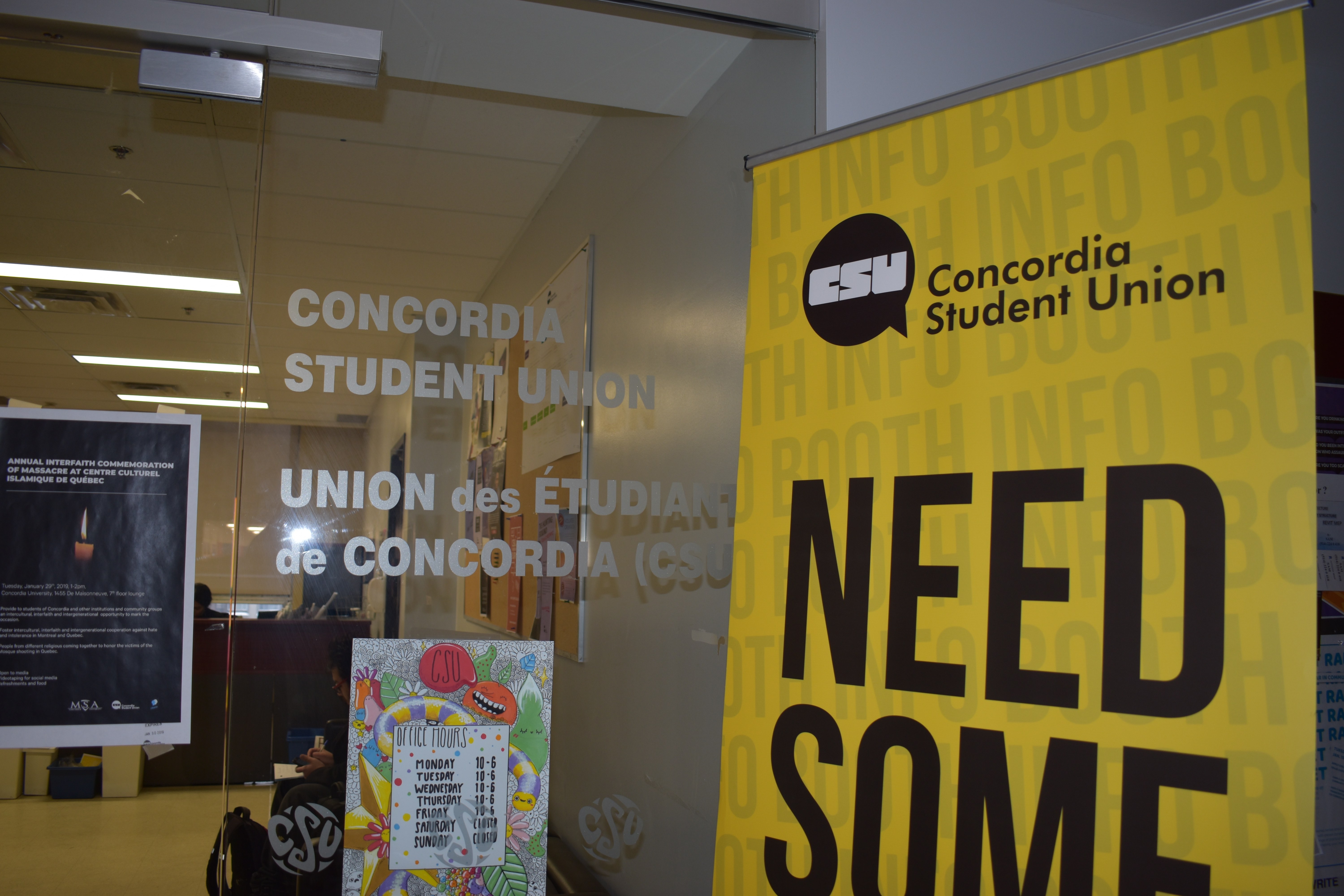Council previously denied solidarity cooperative incubator a place on upcoming election ballot
At the urging of several councillors, the Concordia Student Union (CSU) will hold a second vote on the Solidarity Economy Incubation Zone’s (SEIZE) proposed fee levy referendum for the upcoming general elections.
Four CSU councillors—Samantha Candido, Samuel Miriello, Eliza McFarlane and Victoria Pesce—wrote a letter to CSU Chair Caitlin Robinson, asking her to include a second vote on the agenda for the council meeting on March 13.
SEIZE is a Concordia-based group whose goal is to support solidarity co-ops on and around campus. They are seeking a 35 cent per-credit fee levy to fund their operations. In a secret ballot on Feb. 20, council voted against SEIZE having a fee levy referendum in the general elections. This came after more than 900 students signed a petition in support of the referendum, which was then approved by the CSU’s policy committee.
“We have come to the conclusion that the representatives of council did not vet the SEIZE project in good faith, and therefore invalidated the vote exercised on February 20th, 2019,” the letter to the chair reads. “We believe students are entitled to a fair vetting process for all projects.” Miriello confirmed the item had been put on the agenda in a statement to The Concordian.
“In voting down a grassroots student initiative through secret ballot, the CSU denied undergrads the chance to vote on creating a new economy, ignoring their own policy committee, mandates, and the voices of more than 900 students in the process,” said SEIZE in a written statement to The Concordian.
For a fee levy question to go to ballot, it must be approved by both the CSU’s policy committee and council. “Policy committee has a very specific mandate, they do not look at the mission or the mandate [of the organization],” said CSU Academic and Advocacy Coordinator Mikaela Clark-Gardner, who chairs the policy committee. “That’s up to the students to decide whether or not they like the idea.”
The CSU’s bylaws direct the policy committee to “verify the signatures on the submitted petition, to consider whether the wording of the question is prejudicial to the outcome, and whether the group’s proposed constitution would reasonably allow such an organization to operate and manage the funds being requested.” However, no such guidelines exist for council.
Clark-Gardner said SEIZE fulfilled all of the criteria for a fee levy application, including a budget, a policy document and a petition with at least 750 signatures. However, she said that the committee was also concerned about the fees associated with membership. To qualify as a user member, a student or community member must pay annual dues. Employees of the co-op (or “worker members”) must pay a deposit equal to 1 per cent of their salary. “If you’re having a fee levy that all students are paying into, it should be inclusive to all students,” said Clark-Gardner. “We were worried that the regulations for becoming a member would be a little bit too restrictive, and that they should be able to open their membership without this criteria of payment.”
Marcus Peters, SEIZE’s project leader, clarified that Concordia students would not have to pay dues outside of the fee levy. He said having employees pay a deposit is standard practice for a co-op. “Worker members are expected in cooperatives to put in a personal investment so they can have a demonstrable ownership stake in the organization.”
The committee also raised concerns about the broad scope of SEIZE’s plan. The first draft of its bylaws stated that “the business of the Co-op will be carried on in every province and territory of Canada and elsewhere and may include the provision of services for international organizations.”
“Their focus should really be in Montreal and on the Concordia campus, because that’s where their money is coming from and that’s where the students that they’re supposed to be supporting [are],” said Clark- Gardner.
SEIZE’s history dates back to 2015, when Concordia students and community members formed a working group on promoting solidarity cooperatives. “SEIZE is advocating that we channel the talents and ambitions of student and community entrepreneurs into creating cooperative businesses built around solidarity principles, and in so doing help facilitate an economic transition into a post-capitalist society,” according to their website.
Shortly after SEIZE’s founding, in November 2015, the student body approved a referendum encouraging the CSU to fund a solidarity economy incubator, as previously reported by The Concordian.
In a separate referendum question, SEIZE will ask for a 35 cent per-credit reduction in the fee levy for the CSU’s Student Space, Accessible Education, and Legal Contingency (SSAELC) fund to compensate for their proposed fee levy.
Photo by Mia Anhoury.




